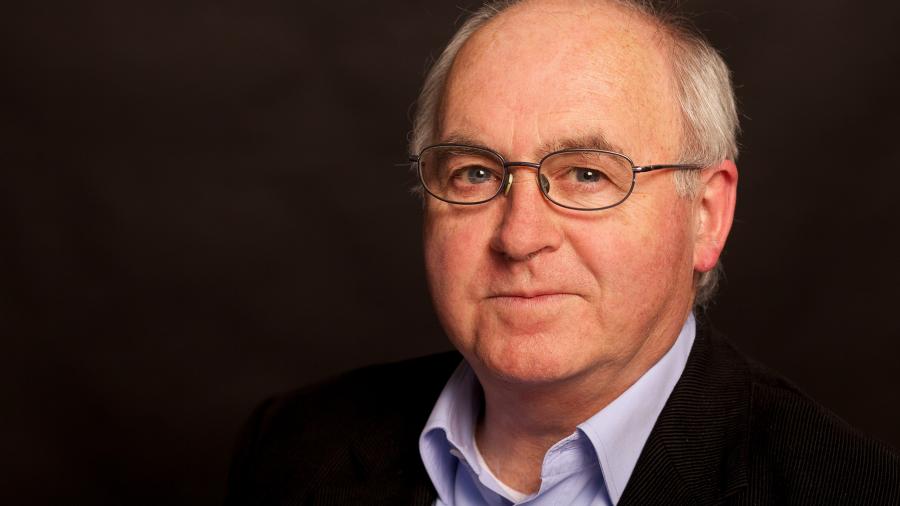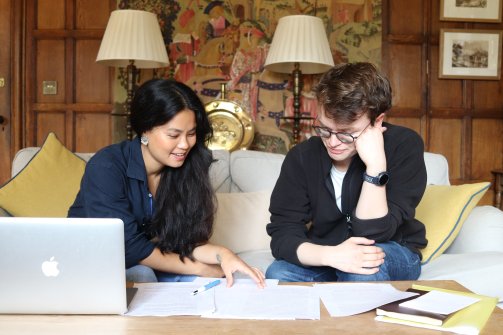The politics of time with Carolyn Smith


“It’s time to take back control of what we own,” says Professor John Naughton.

On Tuesday 28 March in the Lee Hall, Professor Naughton, who is Director of the Press Fellowship at Wolfson, will be joined by a panel of experts to discuss the ‘right to repair’: a growing global movement that campaigns for the right of individuals and small businesses to repair and modify their own electronic devices without being hindered by restrictive policies and anti-competitive practices of manufacturers.
More than 50 million metric tons of e-waste are generated globally every year, largely driven by ‘planned obsolescence’: the practice of building end-of life into a product so that people are forced to replace it with another.
“We are being denied a right to repair at a moment in time when the environmental impact of technology is having huge planetary consequences,” says Professor Naughton.
“Take John Deere tractors. These are very sophisticated, electronically controlled machines. You can’t ask your local garage to service or repair the tractor without invalidating your warranty. These tractors are no longer purely mechanical devices, they depend on their electronic control units, and only John Deere has access to the computer code. Farmers would have to hack their own tractors to get through the digital locks.”
“You think you own your tractor? Actually, you don't. You think you own your iPhone? Well no. There’s an invisible thread that goes from your iPhone to where Apple is.
“The accumulation of power by technology companies has both an environmental impact and a democratic one. People should be allowed to choose how they want to maintain and repair things rather than being forced to rely solely on manufacturers or authorised repair centres.
“Digital technology has transformed our world; yes, absolutely it has. The challenge is how to reclaim it for civil society.”
Some action groups are trying to wrestle back control. Repair Café, for instance, a pop-up in St Ives, Cambridgeshire, run by community-led climate action group St Ives EcoAction, matches people people who need stuff fixed with people who like fixing things.
The Repair Café started with just two Cafés in 2016 and now has a network of 26. The events are so popular that CRCN holds regular ‘How to run a Repair Café in your community’ training sessions and lends out tools to help grow the phenomenon.
Former Wolfson PhD student Charlie Barty-King, who currently divides his work time between Cambridge Zero, where he coordinates a support programme for the Green Officers from the University’s 31 Colleges, and the College’s Interdisciplinary Research Hub on Sustainability & Conservation, went along to a recent training session.
“We live in a single-use, disposable world and Repair Cafés obviously try to reverse this thinking,” says Charlie. “Not only do they draw on local skills in the community but they also encourage people to be involved in the repair and even learn how to tackle it themselves.”
After meeting a bunch of like-minded individuals at the training event, he and a small team have been planning their first Repair Café in Trumpington.
“If Repair Cafés can engage people in wider discussions around sustainability and decarbonisation, either professionally or personally, then that’s a very valuable thing that’s worth supporting,” he says.
“I believe that the hardest part of most things is often starting. So if you can make things easier for others to start down a road they wouldn’t have otherwise – like having things fixed instead of thrown – then that’s a way to immediately have more impact for yourself and those around you.”
This article is an amended version of an article on the University of Cambridge’s website by Louise Walsh.
For the full interview with Professor Naughton, information on how he and colleagues at the Minderoo Centre are asking how we can radically rethink the connection between digital technology, society and our planet, check out the original article on the University's website.
The Right to Repair takes place on Tuesday 28 March in the Lee Hall, Wolfson College, 17:30 - 19:00.
The event is free and open to all. Simply register on Eventbrite.







